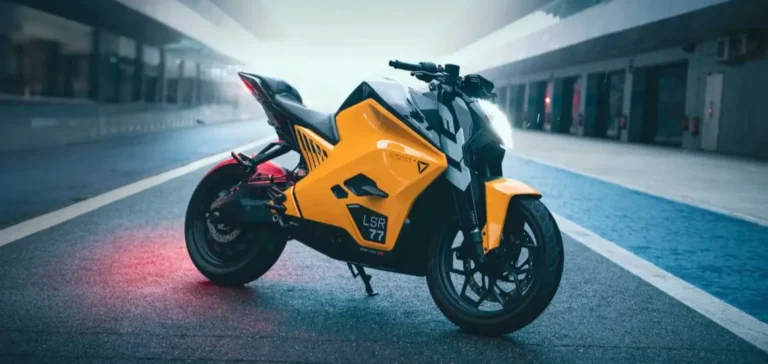TDK Ventures, the venture capital subsidiary of TDK Corporation, has announced an investment in Ultraviolette Automotive Pvt Ltd, an electric motorcycle manufacturer based in Bangalore. The operation is part of Ultraviolette’s latest funding round and aims to boost its production capacity and commercial expansion, both in India and internationally.
A market with strong growth potential
India accounts for nearly 40% of the global two-wheeler market, or around 20 million units per year, according to industry data. Electric motorcycles currently have a penetration rate below 0.1%, despite the rapid adoption of electric scooters, which reached 18% in just four years. The electric two-wheeler segment is expected to generate an economic opportunity of more than $50 billion by the end of the decade.
Ultraviolette offers a range of mid-premium electric motorcycles and scooters designed to meet the growing demand for alternatives to internal combustion engines. Its flagship models, including the F77 MACH 2 and F77 SuperStreet, have received multiple industry awards. Two upcoming vehicles — the Tesseract scooter and the Shockwave light motorcycle — have already secured over 70,000 paid pre-orders, representing a combined value of more than $120 million.
Technological capabilities and international ambitions
Ultraviolette’s technology is built on a proprietary platform that integrates a vehicle operating system, a five-level battery safety system, and a vertically integrated production line capable of reaching a capacity of 100,000 units. The F99 Factory Racing Platform holds the speed record for an India-designed motorcycle, clocking a peak of 258 km/h.
The company currently distributes its products in 20 Indian cities and aims to cover 100 cities by year-end. In parallel, Ultraviolette has started sales in 10 European countries, becoming the first Indian electric vehicle manufacturer to enter the European Union market.
TDK’s strategic technological support
TDK Ventures’ investment aligns with the group’s strategic priorities in electric mobility, the Internet of Things (IoT), and renewable energy. The Japanese company anticipates synergies in advanced battery technology, power electronics, sensors, and rider-assistance systems. In 2023, TDK Ventures opened an innovation hub in Bangalore to support India’s tech ecosystem.
Ultraviolette’s co-founders, Narayan Subramaniam and Niraj Rajmohan, lead the company with expertise drawn from the aerospace, consumer electronics, and automotive sectors, with previous experience at Tesla, Rivian, Apple, Samsung, and Honeywell.






















